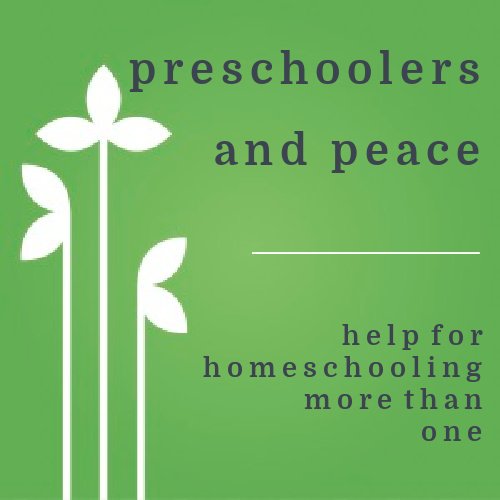Serving and Schooling: The Balancing Act
Recently, one of our readers sent us this question:
I would love to hear you speak about balancing academics and service. Our family is struggling after recently becoming a host family through Safe Families for Children. I know that our biological kids are learning SO much about love, service, and sacrifice by caring for orphans in our home, but we are falling woefully behind in our academic subjects in the mean time (our kids are still young -- preschool through 3rd grade).
We signed up for this ministry knowing that our lives and school schedule would probably be turned upside down when little ones arrived. I am fairly relaxed and would be fine with spending our small amount of discretionary time reading together and playing. But I know that at some point we need to figure out a way to buckle down and accomplish our other academic work. The needs of these broken, hurting kids in our home just always seem more urgent than learning times tables.
We feel called to this orphan care ministry, but also to continue homeschooling our kids. I'm struggling to find a balance of my time in which everyone's needs are met.
First, Safe Families for Children is a ministry that is close to my heart. I'll have to write more about it one day soon. Second, teaching our kids to serve as a family is also important to me and my husband and so this is an issue that we have addressed many times in our family and are at this very moment addressing again!
Let me start with just being very blunt: Jesus trumps schoolwork any day. No contest. If I have a choice between showing my children how we can share the Good News with another person or doing handwriting, handwriting is going to be skipped over that day.
Our family's theme, or motto, which is painted on our back fence, is Learn to Love, Love to Learn. If our children leave our home with nothing more than the basics of reading, writing, and basic math and a desire to learn, but they have been able to grown into people that love God with all their heart, soul, mind and strength, then I'm satisfied.
That all being said, we do have a few strategies to make sure we're getting some formal learning done.
1. School year round as much as possible.
Our family's life has never been described as regular or routine. My husband travels a lot for work. We have children with medical needs that usually require hospitals visits a couple times a year. We've added children through adoption. All of these things mean that we can't predict six months from now what our life will look like. To make sure that we're getting in a decent amount of time hitting the books, we basically school year round. We take breaks here and there, usually around holidays, but we school right through the summer. So if we end up with three extra kids at our house for a week, I don't feel like I have to be a slave to the calendar to the detriment of family relationships and relationships with those extra kids.
2. Audiobooks!
Did you ever listen to stories on records when you were a kid? Well, audiobooks have come a long way since then. Our local library system has hundreds and hundreds of audiobooks for digital download so I can get them right to my phone, including titles that match our current place in Mystery of History. We also check out audiobooks for Magic School Bus (science!) and other great read alouds. We listen to them in the car, during mealtimes and when we just need to chill out for a bit. If we have extra children in our home, or I've had to leave kids in the care of a babysitter while I take a child to the doctor or therapy, they can still have some learning in there. For those that fidget a bit, I will bring out playdough or another quiet activity that can be done while they are listening.
3. Stick to your routine as much as possible.
I write that with a chuckle because I completely understand how quickly the routine gets chucked out the window when an opportunity to serve is presented. Being flexible is definitely important, but I find that having a routine that the family is familiar with means that you can get back to it when life is on a bit more of an even keel. When you get a call, asking if you'll be a host family for two toddlers for a week, you know that you're not going to be doing much more than changing diapers and making a lot of snacks. But when those precious children are reunited with their family, your family can mentally regroup and then get back to the routine, which includes more formal learning.
4. Use every teachable moment.
As my children have grown older, we have reaped the benefits of the hard, hard work of the early years. It's still hard work now, just different hard work :) My oldest children can be asked to make sandwiches for everyone for lunch and I am confident that it will happen. They can slice up apples and cheese and put it on paper plates. They can pour sippy cups of milk. They can lovingly wipe a chubby mouth after lunch is over. They can fetch diapers and wipes. They can read stories to little people. They can push littles in the stroller around our block. All of these are opportunities for our kids to learn. They are learning personal hygiene, food safety, multiplication, fine motor skills, as well as compassion and sacrificial love.
We have never regretted the times that we've skipped "doing school" for a day or several days so that we can serve together as a family. When our children see us serving and encouraging them to serve alongside us, those are lessons that have eternal significance.
-Michele





